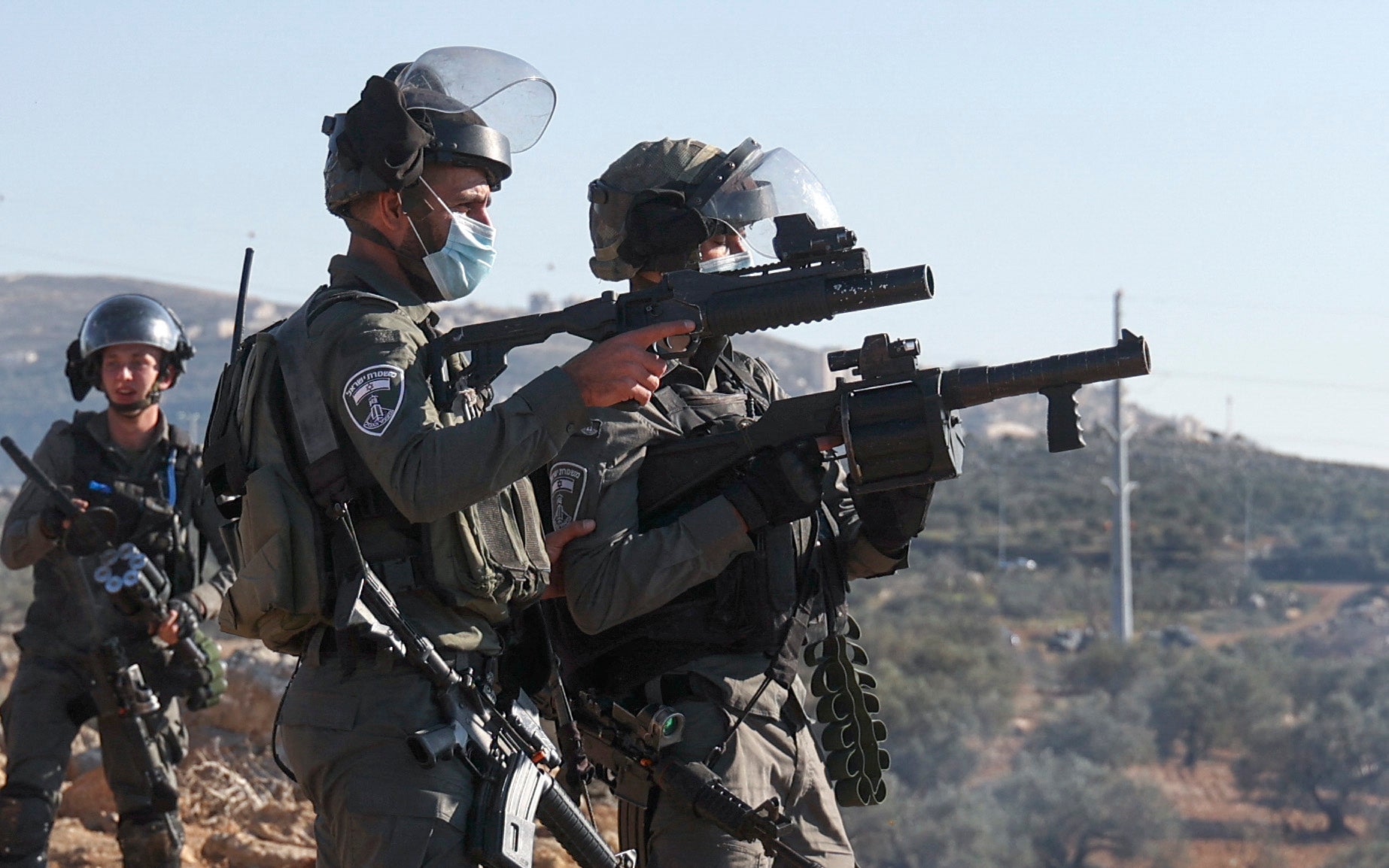Palestine is bleeding: My friend was murdered by Israeli soldiers
We despair, for the walls on the main streets of Beita have been filled with pictures of those killed by Israeli occupation forces


Your support helps us to tell the story
From reproductive rights to climate change to Big Tech, The Independent is on the ground when the story is developing. Whether it's investigating the financials of Elon Musk's pro-Trump PAC or producing our latest documentary, 'The A Word', which shines a light on the American women fighting for reproductive rights, we know how important it is to parse out the facts from the messaging.
At such a critical moment in US history, we need reporters on the ground. Your donation allows us to keep sending journalists to speak to both sides of the story.
The Independent is trusted by Americans across the entire political spectrum. And unlike many other quality news outlets, we choose not to lock Americans out of our reporting and analysis with paywalls. We believe quality journalism should be available to everyone, paid for by those who can afford it.
Your support makes all the difference.The Palestinian poet Mahmoud Darwish once wrote: “If you come back home alive, as rhyme returns, unharmed, say to yourself, thank you!”
Unfortunately for you, my friend Fawaz Hamayel, you did not return to your home alive. Rather, you returned a martyr, carried on the shoulders of your friends and family. Your picture is waiting for its turn to be added to the murals of your town, Beita, whose mountains embrace your body, as your soul flutters over its mountains.
We despair, for the walls on the main streets of Beita have been filled with pictures of those killed by Israeli occupation forces – including a student, teacher, university doctor and engineer.
Beita, which has a long history of struggle, did not hesitate to provide its best youth to defend its land and expel the settlers, including from Mount Sabih, which is threatened with confiscation to establish the settler outpost of Evytar.
Last July, as a result of the activities of the youth of Beita and their commitment to popular resistance, the Israeli army was forced to evacuate the settlers from Evytar outpost – their buildings, however, have remained, guarded by the Israeli army.
Beita’s 17,000 residents have paid a heavy price for popular resistance against the occupiers. According to UN figures, at least 180 people have been injured by live fire, another 1,000 by “rubber” bullets and sponge rounds, and over 4,200 have suffered from tear gas inhalation.
Collective punishment policies have included mass arrests and the revocation of work permits, while Israeli military bulldozers have razed agricultural roads and destroyed olive trees.
My friend Fawaz Hamayel, we grew up in the blink of an eye. You were my classmate at school, and my colleague at university. We shared the love of the land, nature and olives. Our shared sense of belonging to the homeland came ahead of belonging to any faction or political party.
You spent the 46 years of your life, with your three sons, steadfastly on and defending Beita’s mountains. The homeland was your life and your cause altogether. To quote Darwish once more, whose poetry and prose I would hear in the mountains: “The homeland is the longing for death in order to restore the truth, and the land. The homeland is not land, but the land and the truth together. The truth is with you, and the land is with them”.
Today I miss Fawaz. I look for his face in the faces of other people, and I have the feeling that I will catch a glimpse of him in the places where I used to see him. I still do not believe that Fawaz was martyred and will not return, a feeling shared by everyone who knew Fawaz. Perhaps his powerful presence, personality, originality, his activity, is the reason why those around him do not accept his premature absence.
To keep up to speed with all the latest opinions and comment, sign up to our free weekly Voices Dispatches newsletter by clicking here
To Fawaz I say, your memory was a moving archive for the town of which you became a spokesperson, for Palestine and the world. You befriended everyone and everyone loved you. With your absence, we lost a real and legitimate popular leader.
Furthermore, after your cold-blooded execution, how will we convince the new generation of Palestinians to adopt the option of popular resistance that you defended, believed in and promoted among the youth of the town?
Here in Beita, your death has left us with a sense of orphanhood. Superficially, we are alive and you are dead. But the truth is that we live a life of death; running after the rainbow, having fun, laughing and crying, carrying our cares, and quarrelling over the wreckage of the world.
Who will stop the bleeding of Beita, the town that resists alone?
Dr Amjad Abu el Ezz is head of the social studies department at the Arab American University, Ramallah
Join our commenting forum
Join thought-provoking conversations, follow other Independent readers and see their replies
Comments